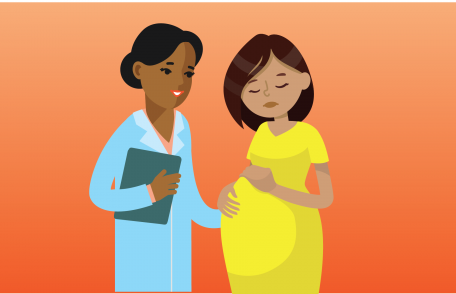When you are pregnant, you are not just “eating for two.” You also breathe and drink for two, so it is important to carefully consider what you give to your baby. If you smoke, use alcohol or take illegal drugs, so does your unborn baby.
First, don’t smoke. Smoking during pregnancy passes nicotine and cancer-causing drugs to your baby. Smoke also keeps your baby from getting nourishment and raises the risk of stillbirth or premature birth. Don’t drink alcohol. There is no known safe amount of alcohol a woman can drink while pregnant. Alcohol can cause life-long physical and behavioral problems in children, includingfetal alcohol syndrome. Don’t use illegal drugs. Using illegal drugs may cause underweight babies, birth defects or withdrawal symptoms after birth.
If you are pregnant and you smoke, drink alcohol or do drugs, get help. Your health care provider can recommend programs to help you quit. You and your baby will be better off.
Pregnancy and substance abuse is a serious public health concern with potentially devastating consequences for both the pregnant individual and the developing fetus. Substance use during pregnancy can include alcohol, tobacco, prescription medications (misused), and illicit drugs such as opioids, cocaine, or methamphetamines.
1. Common Substances and Their Effects on Pregnancy
Alcohol
- Can lead to Fetal Alcohol Spectrum Disorders (FASDs), including birth defects, developmental delays, and behavioral problems.
- There is no known safe amount of alcohol during pregnancy.
Tobacco/Nicotine
- Increases risk of miscarriage, preterm birth, low birth weight, and sudden infant death syndrome (SIDS).
- E-cigarettes and nicotine replacement therapies may still pose risks.
Opioids (e.g., heroin, prescription painkillers)
- Can cause neonatal abstinence syndrome (NAS): withdrawal symptoms in newborns.
- Increases risk of stillbirth, preterm labor, and developmental issues.
Cocaine
- Linked to placental abruption, miscarriage, premature birth, and neurological issues in the baby.
Cannabis (marijuana)
- Associated with low birth weight, attention issues, and cognitive delays.
- THC can cross the placenta and affect fetal brain development.
Methamphetamines
- Linked to growth restriction, heart defects, and behavioral issues.
Benzodiazepines & Other Prescription Drugs
- Can lead to withdrawal symptoms, poor muscle tone, and breathing problems in newborns.
2. Risks to the Mother
- Increased likelihood of complications such as preeclampsia, infections, and mental health disorders.
- Higher risk of domestic violence, homelessness, and poor prenatal care access.
3. Treatment and Support
- Early intervention is critical.
- Medication-Assisted Treatment (MAT) (e.g., methadone, buprenorphine) is recommended for opioid addiction.
- Counseling, behavioral therapies, and support groups can help manage addiction and support recovery.
- Integrated prenatal and addiction care programs improve outcomes.
4. Legal and Ethical Considerations
- In some regions, substance use during pregnancy may be reported to child welfare services.
- Stigma and fear of legal consequences can deter women from seeking help—nonjudgmental, supportive care is essential.
Conclusion
Substance abuse during pregnancy requires compassionate, comprehensive care that prioritizes both maternal and fetal health. Early identification, treatment, and support can dramatically improve outcomes.

